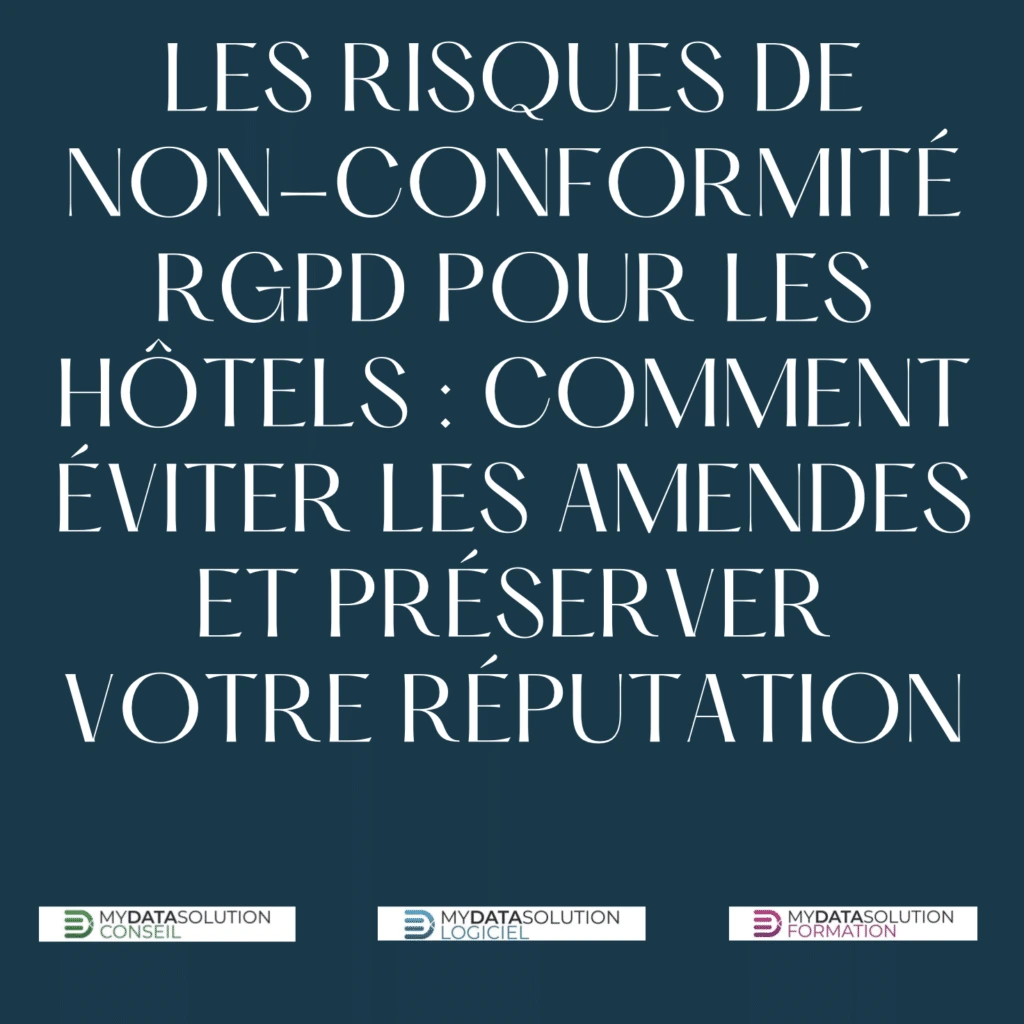The risks of GDPR non-compliance for hotels: How to avoid fines and protect your reputation
In today’s digital era, the protection of personal data is a top priority. Hotels, as organizations that regularly collect and process sensitive data, are subject to strict data protection obligations under the General Data Protection Regulation (GDPR). This article examines the risks hotels face in case of GDPR non-compliance and provides practical measures to avoid fines and safeguard their reputation.
The risks of GDPR non-compliance for hotels
Financial penalties
Non-compliance with GDPR exposes hotels to significant fines. For example, in 2020, a major hotel chain was fined 50 million euros for failing to obtain valid and clear consent when collecting customer data. Fines can reach up to 4% of the hotel’s global annual turnover or 20 million euros, whichever is higher.
Reputation damage
Beyond financial penalties, GDPR non-compliance can cause significant damage to a hotel’s reputation. For instance, in 2019, a hotel suffered a data breach that exposed the personal information of thousands of customers. This breach led to negative media coverage, booking cancellations, and a loss of customer trust. Hotels risk losing clients and suffering a deterioration of their market reputation.
Litigation and legal actions
In case of GDPR non-compliance, hotels face litigation and lawsuits from affected individuals. For example, in 2021, a hotel was sued by dissatisfied customers for failing to respect their right to access and rectify their personal data. Legal disputes and lawsuits can result in significant financial costs and negatively impact the hotel’s reputation.
How to avoid fines and protect your reputation
Implementing strong data governance
The first essential step to avoiding GDPR non-compliance risks is to implement strong data governance. For example, Hotel XYZ appointed a Data Protection Officer responsible for overseeing data protection activities, implementing data protection policies and procedures, and training staff on best practices for data processing.
Informed and transparent consent
Obtaining valid and informed consent from individuals is a fundamental GDPR requirement. For example, Hotel ABC implemented a clear and explicit consent collection process during online booking, clearly explaining the purposes of data processing and allowing customers to withdraw their consent at any time.
Data security and access management
Data security is a major concern under GDPR. For example, Hotel DEF implemented robust security measures to protect its customers’ personal data. This includes the use of advanced encryption systems to safeguard sensitive information, restricting data access to authorized personnel only, and regularly monitoring data processing activities to detect any anomalies.
Staff training and awareness
Staff play a key role in GDPR compliance. For example, Hotel GHI introduced regular training programs to educate its staff on GDPR principles and requirements. Employees are trained on best data protection practices, procedures to follow in case of data breaches, and security measures to uphold. They understand the importance of data protection and confidentiality.
In summary
GDPR compliance is essential for hotels to prevent fines and safeguard their reputation. By implementing strong data governance, obtaining informed and transparent consent, securing data, and training staff, hotels can reduce the risks of GDPR non-compliance. By adopting these proactive measures, hotels enhance customer trust, improve their brand image, and stand out from the competition.





